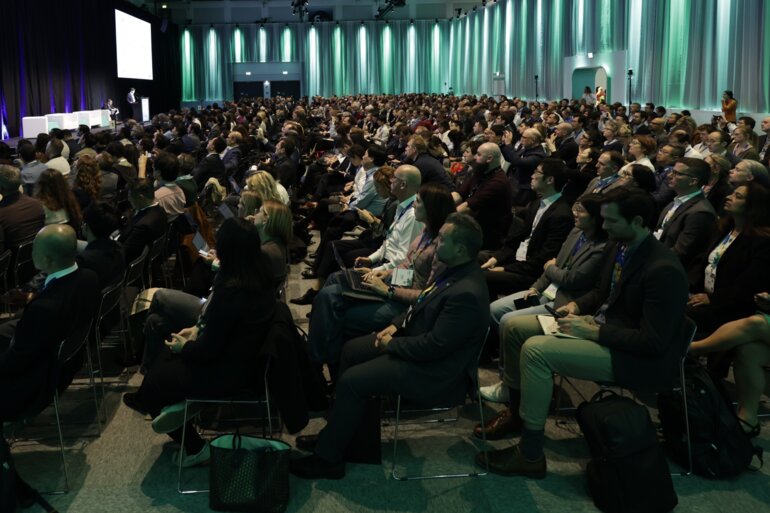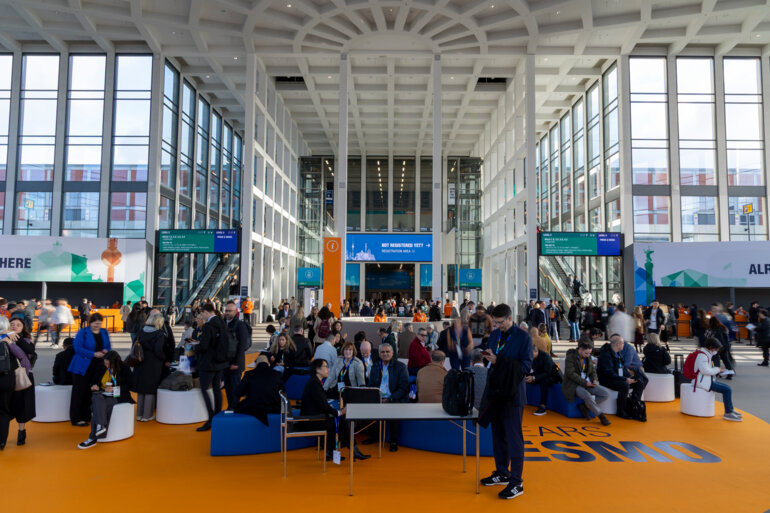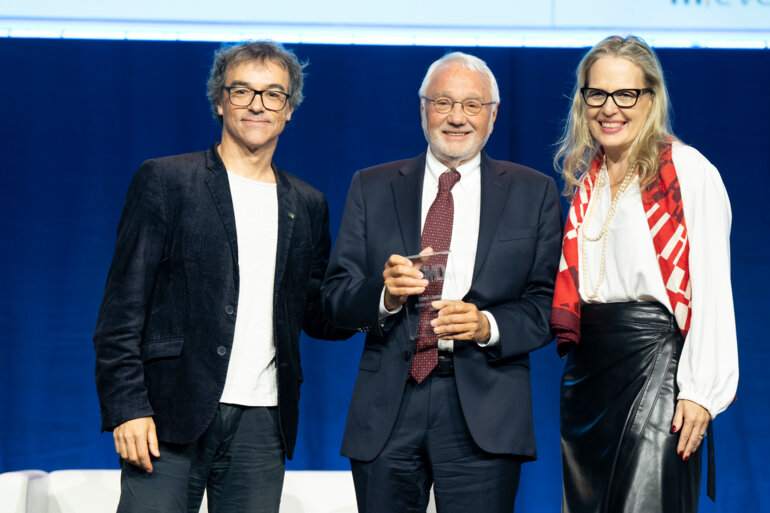Results from studies presented at the ESMO Congress 2023 (Madrid, 20–24 October) outline different strategies involving indirect immune modulation and direct enhanced tumour cytotoxicity to improve on chemotherapy as the current standard of second-line care after ICI progression
Immune checkpoint inhibitors (ICIs) have transformed the treatment of non-small cell lung cancer (NSCLC). However, resistance occurs in almost all patients – either during treatment or following an initial response – limiting long-term treatment success (Cancer Cell. 2020;37:443–455). There has been extensive research into the mechanisms responsible for resistance, but the picture is complex as resistance is multifactorial and may involve the tumour itself, its microenvironment and host characteristics. Researchers have tried to identify biomarkers, most commonly predictors of primary resistance, but the varying mechanisms mean this is very difficult to achieve, particularly for acquired resistance.
How can we enhance the response to ICIs? One potential approach is to improve immunogenicity via the tumour microenvironment by enhancing the efficacy or quantity of effector T cells or inhibiting tolerogenic cells, such as myeloid-derived suppressor cells and regulatory T cells (Cell Res. 2020;30:507–519). As an example, sitravatinib, a TKI targeting TAM receptors and VEGFR2, has been developed to shift the tumour microenvironment toward a less immunosuppressive state. However, as presented at the ESMO Congress 2023, the phase III SAPPHIRE trial failed to show meaningful clinical improvements with sitravatinib plus nivolumab over chemotherapy in patients with advanced NSCLC after progression on ICI (LBA63). With different patients having different resistance mechanisms and in the absence of adequate biomarkers, choosing the most appropriate patient population for phase III trials may have contributed to the disappointing study findings.
Another avenue to enhance immunogenicity involves simultaneous blockade of a different immune receptor at the same time as PD-1/PD-L1. First-in-human phase I/IIa results with sabestomig (AZD7789), a PD-1/TIM-3 bispecific antibody, presented at the congress hint at the expansion of both existing and new peripheral T cells, with preliminary clinical activity (Abstract 1313MO). However, caution is warranted since previous promising results from phase II trials – as seen with sitravatinib and other novel agents – have failed to translate to positive findings in phase III trials in second-line NSCLC. Other sophisticated ways to stimulate more robust immune responses include bispecific T-cell engagers – which are more advanced in small-cell lung cancer than NSCLC (Curr Opin Oncol. 2023;35:78–85) – tumour-infiltrating lymphocyte (TIL) therapy and mRNA-based vaccines (JACC CardioOncol. 2022;4:563–578), but these are at early stages of development in NSCLC.
Currently, chemotherapy remains the standard of care after progression on ICI, with few available second-line options. Combining chemotherapy with immunotherapy rechallenge has been tested, with ORR 31% observed with atezolizumab plus gemcitabine in the single-arm, phase II SAKK 17/18-ORIGIN trial, presented in Madrid (Abstract 1412P). However, one of the main highlights of the Congress – along with the other potentially practice-changing trials in NSCLC – is new data on the use of antibody–drug conjugates (ADCs) after progression on ICI. Eagerly awaited efficacy and safety results from the phase III TROPION-Lung01 trial with the TROP2-directed ADC, datopotamab deruxtecan will be presented (LBA12). The use of this novel form of ‘biologically targeted chemotherapy’ in NSCLC has somewhat lagged behind other solid tumours, such as breast and gastric cancers, but rapid development of highly potent third-generation ADCs in NSCLC, with and without actionable alterations, is now underway in the immunotherapy-resistant setting. Several ongoing phase III trials, such the EVOKE-01 (sacituzumab govitecan; NCT05089734), CARMEN-LC03 (tusamitamab ravtansine; NCT04154956) and TeliMET NSCLC-01 (telisotuzumab vedotin; NCT04928846) are testing the efficacy of ADCs as single agents in comparison to docetaxel. Other studies are exploring ADCs in combination with an ICI, with and without platinum chemotherapy, in the first-line setting in NSCLC (Curr Oncol. 2023;30:4329–4350). ICIs revolutionised the treatment of NSCLC – now a new revolution is needed.
Abstracts discussed:
Borghaei H, et al. SAPPHIRE: Phase 3 study of sitravatinib plus nivolumab versus docetaxel in patients with previously treated advanced non-squamous non-small cell lung cancer (NSCLC). ESMO Congress 2023, LBA63
Proffered Paper Session – NSCLC, metastatic, 20.10.2023, h. 16:00 – 17:30, Barcelona Auditorium – Hall 9
Besse B, et al. Safety and preliminary efficacy of AZD7789, a bispecific antibody targeting PD-1 and TIM-3, in patients (pts) with stage IIIB–IV non-small-cell lung cancer (NSCLC) with previous anti-PD-(L)1 therapy. ESMO Congress 2023, Abstract 1313MO
Mini Oral Session 1 – NSCLC, metastatic, 21.10.2023, h. 08:30 – 10:00, Granada Auditorium – Hall 3
Curioni-Fontecedro A, et al. SAKK 17/18-ORIGIN trial: Efficacy and safety from a multicenter phase II trial of gemcitabine and atezolizumab in patients with advanced NSCLC progressing on immune checkpoint inhibitors. ESMO Congress 2023, Abstract 1412P
Poster Display – NSCLC, metastatic, 23.10.2023, Hall 8
Ahn M-J, et al. Datopotamab deruxtecan (Dato-DXd) vs docetaxel in previously treated advanced/metastatic (adv/met) non-small cell lung cancer (NSCLC): results of the randomized phase 3 study TROPION-Lung01. ESMO Congress 2023, LBA12
Presidential 3, 23.10.2023, h. 16:30 – 18:15, Madrid Auditorium – Hall 6






